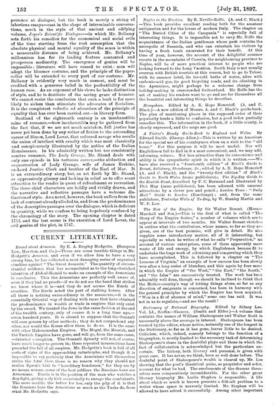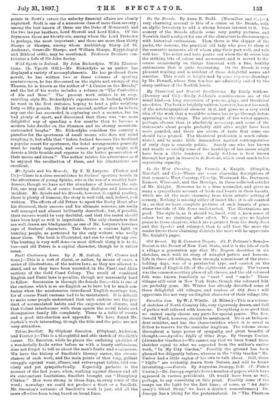Dictionary of National Biography. Edited by Sidney Lee. Vol. LI.,
Scoffin—Sheares. (Smith and Elder.)—A volume that contains the names of William Shakespeare and Walter Scott is necessarily above the average in interest. Shakespeare has been treated by,the editor, whose notice, naturally one of the longest in the Dictionary, so far as it has gone, leaves little to be desired. Criticism, which, indeed, scarcely belongs to the function of a biographer, is mostly limited to the necessary task of determining Shakespeare's share in the doubtful plays and those in which the fact of collaboration is acknowledged but the particulars un- certain. The history, both literary and personal, is given with great care. It has never, we think, been so well done before. The doubtful point of Shakespeare's wealth is cleared up, Mr. Lee showing that the poet's theatrical gains, as proprietor and actor, account for what he had. The emoluments of the dramas them- selves were comparatively inconsiderable. For the other great literary biography Mr. Leslie Stephen is responsible. A life about which so much is known presents a difficult problem to a writer whose space is narrowly limited. Mr. Stephen will be allowed to have solved it successfully. Among other important points in Scott's career the unlucky financial affairs are clearly explained. Scott is one of a numerous class of more than seventy; among the best known of these are the Duke of Monmouth and the two lawyer brothers, Lord Stowell and Lord Eldon. Of the Seymours there are twenty-six, among whom the Lord Protector is, perhaps, the most important; and there are more than thirty Sharps or Sharpes, among whom Archbishop Sharp (of St. Andrews), Granville Sharpe, and William Sharpe, Egyptologist and Biblical critic, may be mentioned. Professor Prothero con- tributes a Life of Sir John Seeley.







































 Previous page
Previous page